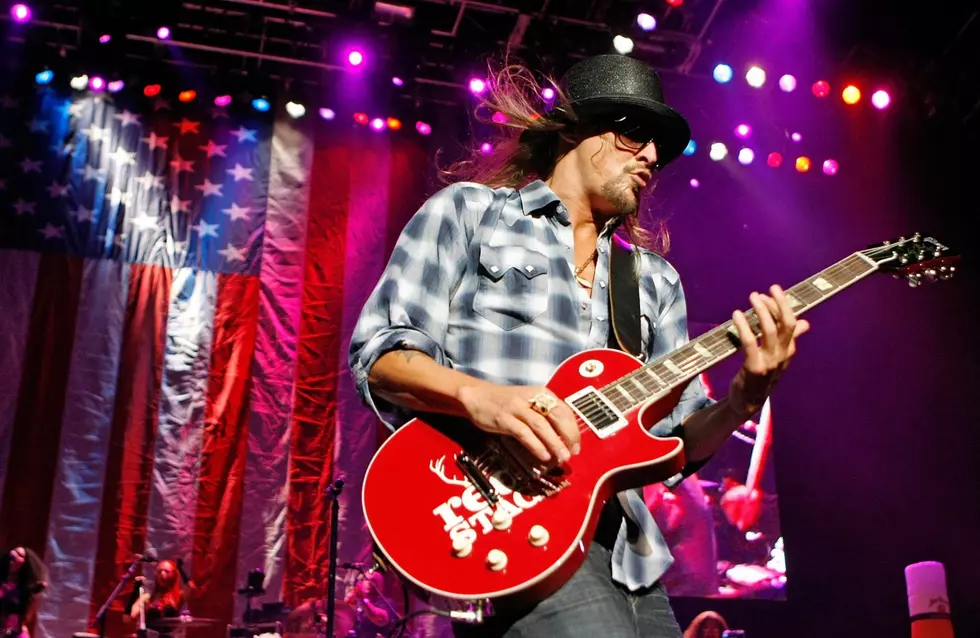
Nirvana’s ‘Nevermind’ Marked Rock’s ‘Year Zero’
Loudwire is counting down the biggest moments in metal and hard rock, stretching from the dawn of Black Sabbath to the genre's promising future. Here, we look at the impact of Nirvana's 'Nevermind,' and the effect it had on hard rock and heavy metal.
In January of 1992, Nirvana -- a band from Seattle who few mainstream music fans had heard of a year earlier -- knocked Michael Jackson’s Dangerous out of the number one slot on the album charts. It was a metaphor playing out in real time; the zeitgeist had shifted. The slick studio productions that dominated the pop charts for years were now seen as corny and old, replaced by rock music played with an anti-commercial, punk rock code of ethics. Kurt Cobain held tight to his punk/outsider ethos, and he made it cool to like fringe artists, turning a generation on to punk and indie acts including Mudhoney, the Raincoats, Urge Overkill, the Melvins, the Meat Puppets and the Butthole Surfers, among others. Suddenly, those bands were getting major label record deals and a bit of time in the mainstream spotlight, however fleetingly. Meanwhile, pop metal bands and guitar shredders, as well as most pop and adult contemporary artists were put on notice; their time was running out.
In the 2008 film The Wrestler, there’s a scene where Mickey Rourke’s “Randy ‘The Ram’ was discussing the greatness of ‘80s music, like Ratt, Def Leppard and Motley Crue. Marisa Tomei’s “Pam” exclaims, “[The] Fuckin’ ‘80s, man, best shit ever!” To which Robinson responds, “And then that pussy Cobain came along and ruined everything!” And while open-minded metal fans tended to embrace Nirvana and the new wave of punk-inspired alt-rock, there were lots of diehards who, like “The Ram,” blamed the decline of their favorite music on Nirvana.
But as Dee Snider of Twisted Sister (a band “The Ram” would surely approve of) tells Loudwire, heavy metal only had itself to blame for its early-’90s decline. “There were some missteps. When metal reached the mainstream, it was becoming commercialized, and now you were getting this package: you were getting the songwriters and the producers and the costume designers, and ‘happy metal’ was born. Metal became acceptable, pretty and nice. And then the MTV Unplugged thing happened. That was big. All of the sudden, you’re not 'legit' unless you can play without your amplification. Let’s see Tracy Chapman and Paul Simon plug into a Marshall stack and ride the motherfucking lightning, that’s what I call legit! But the bands went for it, and were trying to legitimize themselves by stripping down and sitting down and playing with acoustic guitars. Well, that became all the rage.”
Decades later, the distinctions between metal and alternative don’t matter as much as they seemed to back then. Guitar hero Nita Strauss is currently working on her debut solo album, an all-instrumental shred-fest, a la Joe Satriani and Steve Vai’s classic efforts. But, as she recently told Loudwire, she started play guitaring by learning Nirvana songs.
“Nevermind came out in 1991, I was four years old. I started playing guitar in like 2000. I was always into the shredding stuff. But no guitar player can start out playing Satriani songs. It’s not possible. I grew up in LA, and I was hearing what was on the rock radio in LA: Nirvana.”
Her experience with Nirvana’s music came without context or baggage. “As a young guitar player who didn’t have that experience of ‘This music killed the music I love,’ I was like, ‘Oh, this is cool. I can play this. I might not be able to play [Steve Vai’s] ‘For the Love of God’ yet, but I can sure as hell play ‘Come as You Are.’’”
More From Rock 108







